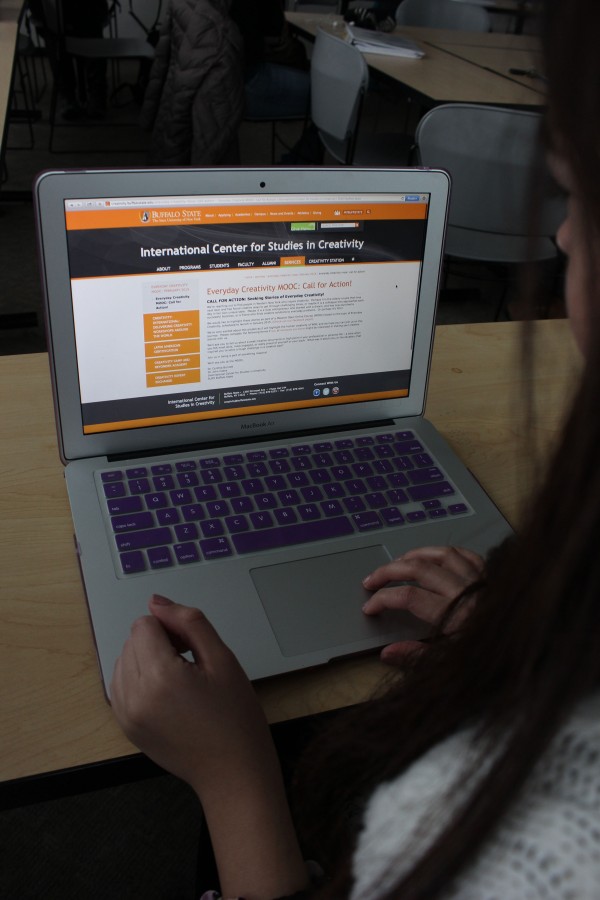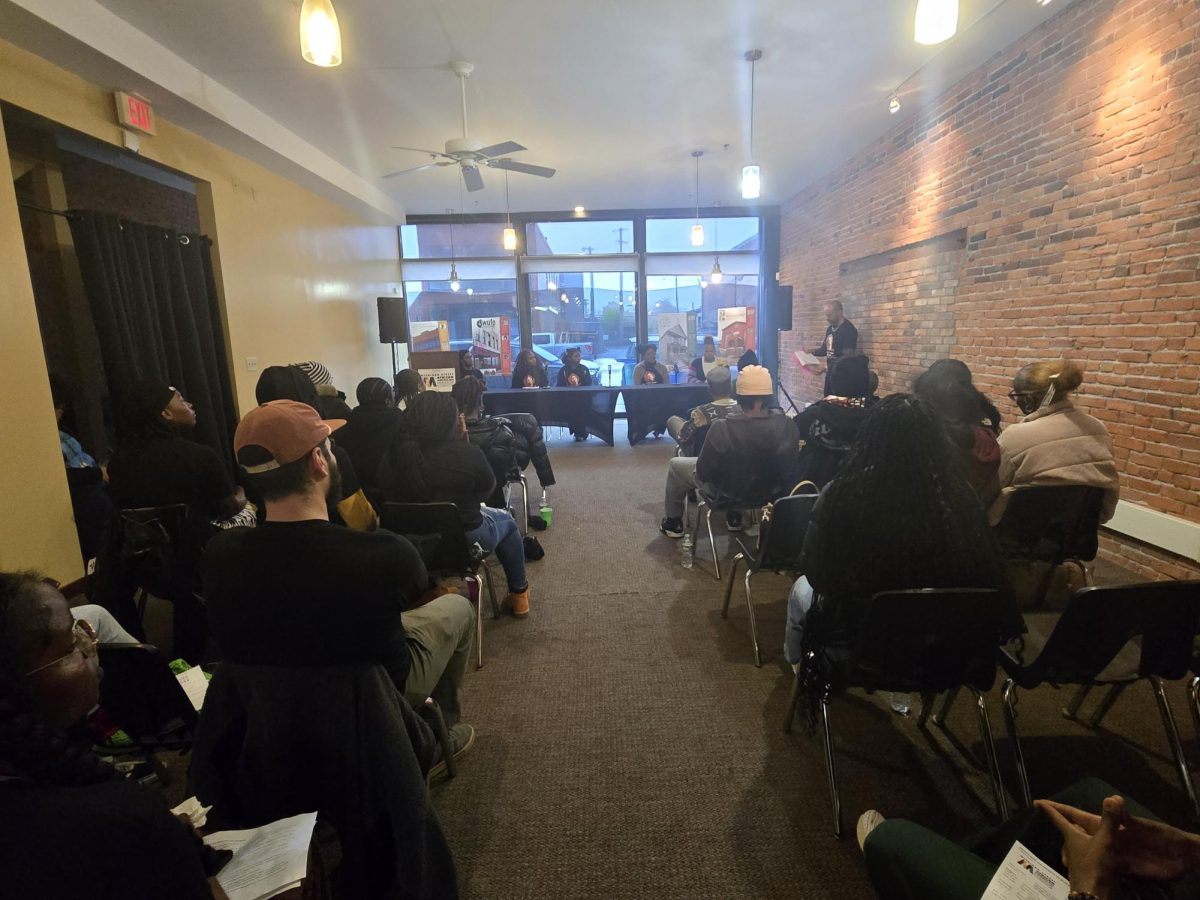Buffalo State offering free online course in creativity
February 4, 2015
SUNY Buffalo State will be the first SUNY institution to offer a free Massive Open Online Course (MOOC) on Everyday Creativity, starting on February 16. The online course will run for six weeks until March 30.
Anybody can register for Everyday Creativity and it’s absolutely free. The course currently has around 15,000 registered students of all age ranges from 157 different countries around the world. The Creative Studies Department is hoping that number doubles by the time the course begins.
Everyday Creativity will be the first MOOC to be run by a local college. The course is formatted into three different categories: #bAware, which focuses on creativity principles and theory, #bInspired, which presents examples of creative people, and #bCreative, which will teach students to spark their own creativity.
Scared of quizzes? Not a very good test taker? Don’t worry, there won’t be any. Students will be graded on peer and self evaluations, along with a final reflective response at the end.
Dr. Cyndi Burnett is an Assistant Professor at the International Center for Studies in Creativity at Buffalo State. Burnett, who will be teaching some of the course, is optimistic about it having a large impact.
“Everyday Creativity refers not only to the human aspect of creativity, but also the process of creativity and the creative product that is developed,” Burnett said. “Essentially, Everyday Creativity takes the focus away from the eminent creators such as Steve Jobs and Albert Einstein, and turns it inward towards our own creative accomplishments, in day-to-day life.”
Burnett said that the course is based on principles that have been taught successfully for 40 years now. More importantly, Burnett added, the principles being taught have been used by students outside of the classroom.
“The principles of Creative Problem Solving have been used for everything from developing new cake recipes to helping NASA look for life outside our solar system,” Burnett said. “The theories and tools really work, and with the platform that Coursera has developed, we are confident that we can help thousands of people learn about these ideas.”
Julia Figliotti, a recent graduate of Buffalo State, is Assistant MOOC Coordinator for the course. Figliotti will be one of several Teaching Assistants for the course, helping to answer student questions in the discussion forum.
“The MOOC reflects a lot of what we learned in Introduction to Creative Studies (CRS 205), which is an undergraduate course that I took my first semester as an undergraduate at Buffalo State,” Figliotti said. “But I think it’s more than just a reflection of that introductory course. Instead of being 100 percent academic, the MOOC really reaches out to everyone — students, professionals, stay-at-home parents – anyone with a computer. While the 205 course focuses on the same learning materials, I think the MOOC makes it more personal. Yes, it’s a course on creativity, but it’s about your creativity.”
For those familiar with MIT OpenCourseWare, the MOOC has some distinguishable differences. For starters, the MOOC is more exclusive, being offered at a specific time rather than being a constantly running course. Figliotti said that while that was an option for the MOOC, a study will be conducted at the same time as the course, allowing it to be static.
According to Figliotti, Everyday Creativity includes more interaction than OpenCourseWare. Figliotti said that the course will be graded, and students will have the option for certification and be able to ask questions and interact with classmates on discussion forums.
When asked if she thought the course would be successful, Figliotti said “Without a doubt. This course is going to change the way people see creativity, and the way they see themselves. A lot of people don’t really believe in everyday creativity. I mean, how many of us have heard someone say, “I don’t have a creative bone in my body,” or said it ourselves? It’s just not true. I remember when I took CRS 205, I walked out of that classroom feeling inspired and invincible. Accepting and developing your own creativity is really empowering – not just in the academic world, but in your everyday life. You take different approaches to annoyances, you keep a more open mind, and you’re more likely to solve interpersonal problems in productive ways. I’m not citing any statistics on this, but from my experiences, and from the conversations I’ve had with former classmates, it’s true.”
Email: koster.record@outlook.com



